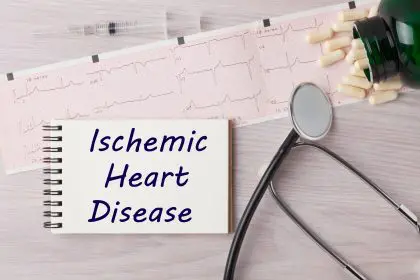The wellness industry has long profited from convincing consumers they need special products to “detox” or “cleanse” their bodies. Americans spend billions annually on detox products, from juice cleanses to foot pads claiming to draw toxins from the body. But medical professionals and researchers consistently point to a simpler truth, the human body comes equipped with sophisticated systems designed specifically for removing waste and harmful substances.
The detox myth
The term “detox” has become a marketing buzzword rather than a medical reality. Many commercial detox programs make vague claims about eliminating undefined “toxins” without scientific backing. The liver, kidneys, digestive system, lungs, and skin work continuously to filter waste and maintain health without requiring special interventions.
Medical professors and toxicology experts at major research institutions have repeatedly emphasized that the whole concept of “detoxing” through special products or regimens lacks scientific validity. The body has its own sophisticated mechanisms for eliminating potentially harmful substances we ingest.
Extreme detox methods like prolonged juice fasts or severe calorie restriction can actually be counterproductive, potentially slowing metabolism and depleting the body of essential nutrients.
How your body naturally detoxifies
The human body has evolved multiple systems that work around the clock to process and eliminate harmful substances:
The liver acts as the primary filtration system, breaking down toxins into less harmful compounds that can be excreted. This complex organ processes everything from alcohol to medications and environmental pollutants.
The kidneys filter blood, removing waste and excess substances which are then excreted through urine.
The digestive system eliminates solid waste through the intestines, which also house beneficial bacteria that support immune function and overall health.
The lungs expel carbon dioxide and other gaseous waste products.
The skin eliminates certain toxins through sweat, though this is a minor pathway compared to other systems.
5 evidence-based ways to support natural detoxification
Instead of turning to questionable detox products, consider these five science-backed approaches that support your body’s natural cleansing processes:
Stay properly hydrated
Water is essential for every detoxification pathway in the body. It helps the kidneys filter waste, enables cellular processes, and allows for the elimination of toxins through urine and sweat.
Adequate hydration supports liver function and helps maintain the flow of lymph, which carries waste away from tissues. While individual needs vary, aiming for approximately 2-3 liters of water daily provides benefits for most people.
Contrary to popular claims, drinking more water doesn’t necessarily “flush out toxins” faster, but consistent hydration ensures these systems function optimally.
Prioritize nutrient-dense foods
The best “cleanse” is simply eating a balanced diet rich in vegetables, fruits, whole grains, lean proteins, and healthy fats. These foods provide the nutrients your detoxification organs need to function properly.
Cruciferous vegetables like broccoli, cauliflower, and Brussels sprouts contain compounds that may enhance the liver’s natural detoxification enzymes. Berries, citrus fruits, and leafy greens provide antioxidants that help protect cells from damage.
Fiber-rich foods support digestive health and regular elimination, preventing buildup of waste in the intestines. Aim for 25-35 grams of fiber daily from varied sources.
Move regularly
Regular physical activity supports natural detoxification processes in multiple ways. Exercise increases blood circulation, which helps deliver nutrients to detoxifying organs and remove waste products more efficiently.
Physical movement also promotes lymphatic circulation, which lacks a pump like the heart and relies partially on muscle contractions to move lymph fluid containing cellular waste.
Additionally, sweating during exercise provides a minor route of elimination for certain compounds, though its detoxification role is often exaggerated in marketing claims.
Improve sleep quality
During sleep, the brain undergoes its own cleansing process. The glymphatic system, discovered relatively recently, becomes more active during deep sleep, helping to clear waste products from the brain.
Poor sleep is associated with impaired cognitive function and, over time, may contribute to various health problems. Most adults need 7-9 hours of quality sleep nightly to support overall health and cognitive function.
Creating consistent sleep routines and limiting screen time before bed can improve sleep quality and support these natural cleansing processes.
Reduce environmental exposure
One effective way to reduce the detoxification burden on your body is to minimize exposure to unnecessary chemicals and pollutants in the first place.
Consider using natural cleaning products, choosing organic foods when possible to limit pesticide exposure, filtering drinking water, and being mindful of personal care products that may contain potentially harmful ingredients.
Indoor air quality can be improved with proper ventilation and houseplants that help filter certain air pollutants.
When medical detoxification is necessary
While commercial detox programs rarely deliver on their promises, medical detoxification is legitimate and necessary in specific situations, such as drug or alcohol addiction, poisoning, or certain medical conditions. These processes should be supervised by healthcare professionals in appropriate settings.
For most people seeking to support their body’s natural functions, focusing on consistent, healthy habits rather than extreme detox regimens will provide greater long-term benefits.
The human body performs detoxification continuously without special products or programs. By supporting rather than attempting to override these sophisticated systems, we can maintain health more effectively than any quick-fix cleanse could provide.















